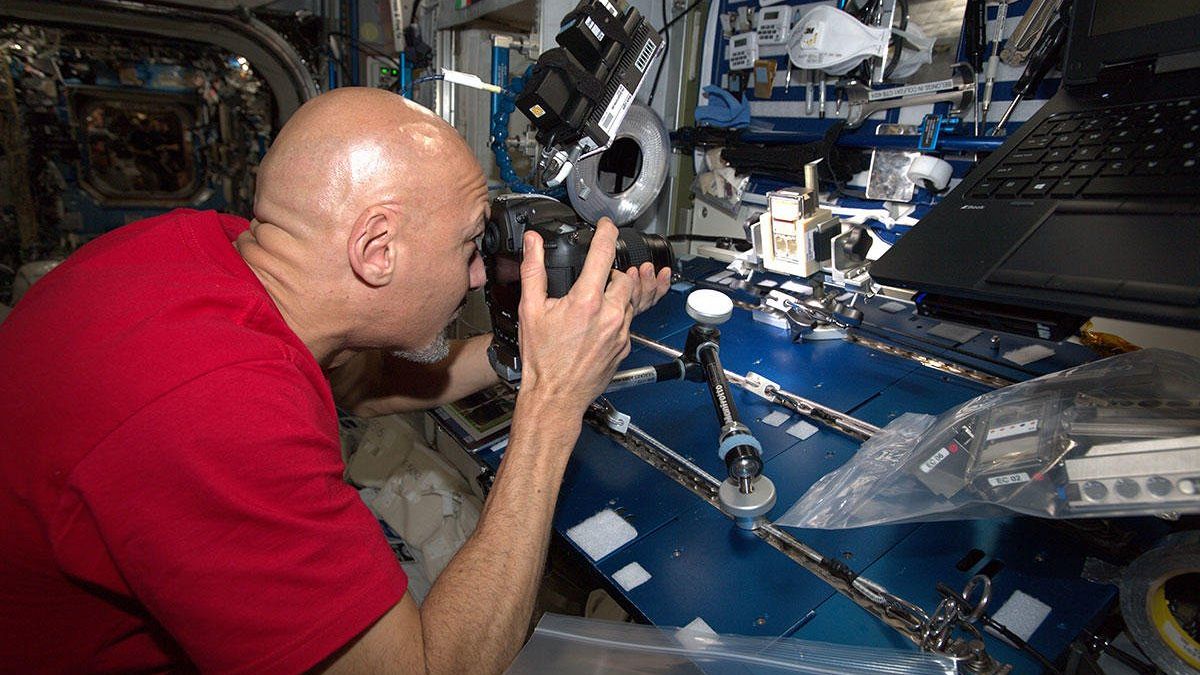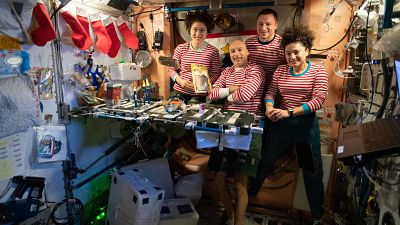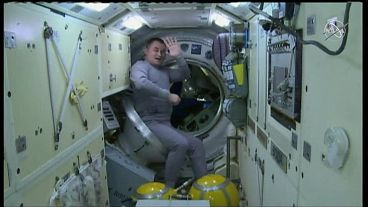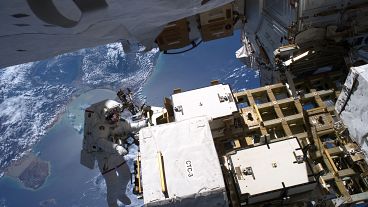Euronews space correspondent and European Space Agency (ESA) astronaut Luca Parmitano has sent the latest instalment of Space Chronicles, a series following his adventures on the International Space Station (ISS) during his six-month mission.
Euronews space correspondent and European Space Agency (ESA) astronaut Luca Parmitano has sent the latest instalment of Space Chronicles, a series in which he documents his experiences on the International Space Station (ISS) over a six-month period. Now in his third month, Parmitano reports on the effects of space travel on body fluids and ageing. Some excerpts from his latest report are below.
"We have had a lot of interesting science and exciting science performances here on the space station. One which I want to explain to you is called fluid shift," he said.
"What we know about the human body in microgravity is that our blood and all the fluids in our body tend to float toward the upper parts because of the difference in how the heart is pumping in microgravity versus the earth. That fluid shift has many consequences such as increasing the pressure on our eyes, which increases the possibility of intracranial pressure, it changes our cardiovascular behaviour."
Parmitano is participating as a subject in an experiment about "vascular ageing".
"When we go back down to earth after a long permanence in space our cardiovascular system has aged in a way that is inconsistent with the way we have up in on the ground. We don't know whether that is due to dieting or because performance in space is different when we move around. when we do sports. But these studies trying to figure that out and connect the dots."



